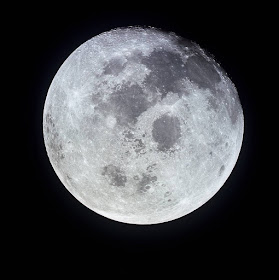The next couple of weeks hold some special events in the night sky, the Winter Solstice, a Christmas Full Moon and a New Year's Comet!
Winter Solstice
December 21st or 22nd is the Winter Solstice (depending on your time zone). This marks the official start of the winter season, and in the Northern Hemisphere the shortest day of the year. (Yes, that means slowly but surely we will start gaining light in the mornings and evenings again! Hallelujah!)
We experience 2 solstices and 2 equinoxes each year. The solstices, in winter and summer, are when Earth is getting the least direct sunlight due to the tilt of our axis, and the most direct sunlight. To better understand our Earth's axis and the changing seasons, check out my post: The Changing Seasons: So Much More Than Temperature! This is a topic laden with science misconceptions held by children and adults. Do you think you understand the concept of seasons?
Christmas Full Moon
Did you know that the last full moon of December is called the "Full Cold Moon" because of it's proximity to the start of winter? This year, we will experience a Christmas full moon for the first time since 1977. It won't happen again until 2034, so be sure to look up for this celestial Christmas gift!
 |
| image: NASA |
New Year's Comet Catalina
Catalina, a comet discovered and named after the Catalina Sky Survey in 2013 is making its way across the sky in the next few weeks. Star gazers are hoping for some naked-eye viewing of the comet to help ring in the New Year.
 | |
| Lovejoy Comet Passing Through Ursa Major (image: NASA/MSFC/Jacobs Technology/ESSSA/Aaron Kingery) |
Although the comet will pass closest to Earth on January 17th, there are great opportunities to view it on the evenings around December 31st. To locate the comet, you'll need to find the constellation Bootes. Find the reddish star Arcturus and near the star you should see the fuzzy tail of the comet. A pair of binoculars will help! For some tips and resources for helping navigate the night sky digitally or with a star map visit this post and scroll to the resource section.
Happy Star Gazing!
Resources:
- Earth Sky: Everything You Need To Know About the December Solstice
- NASA: Rare Full Moon on Christmas Day
- Discovery News: Look up! Comet Catalina to Dazzle New Year's Skies


No comments:
Post a Comment